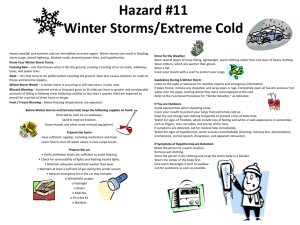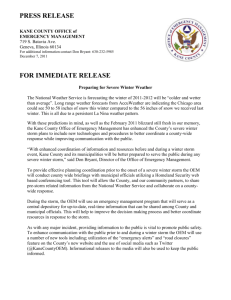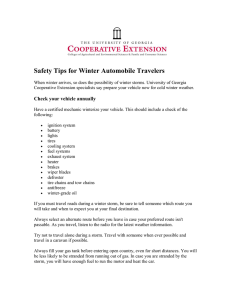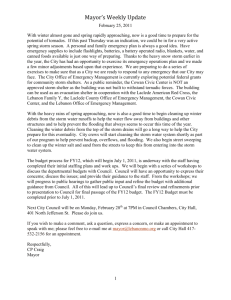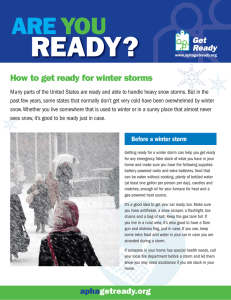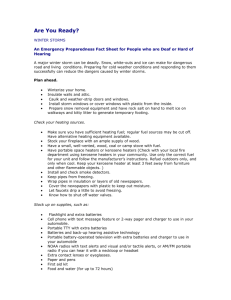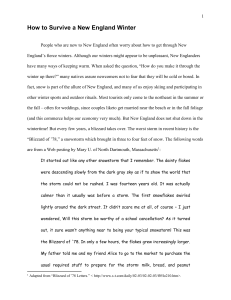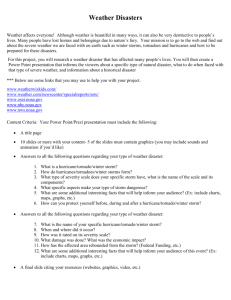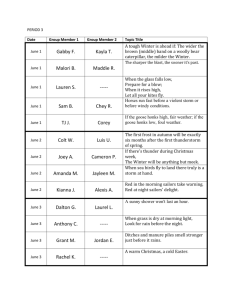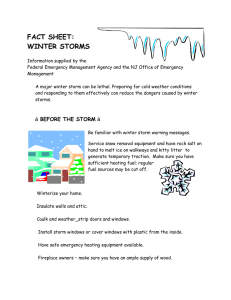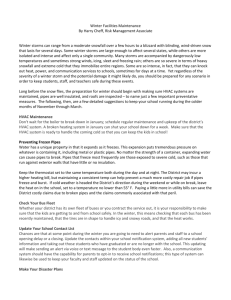winter storm / Microsoft Office Word Document
advertisement
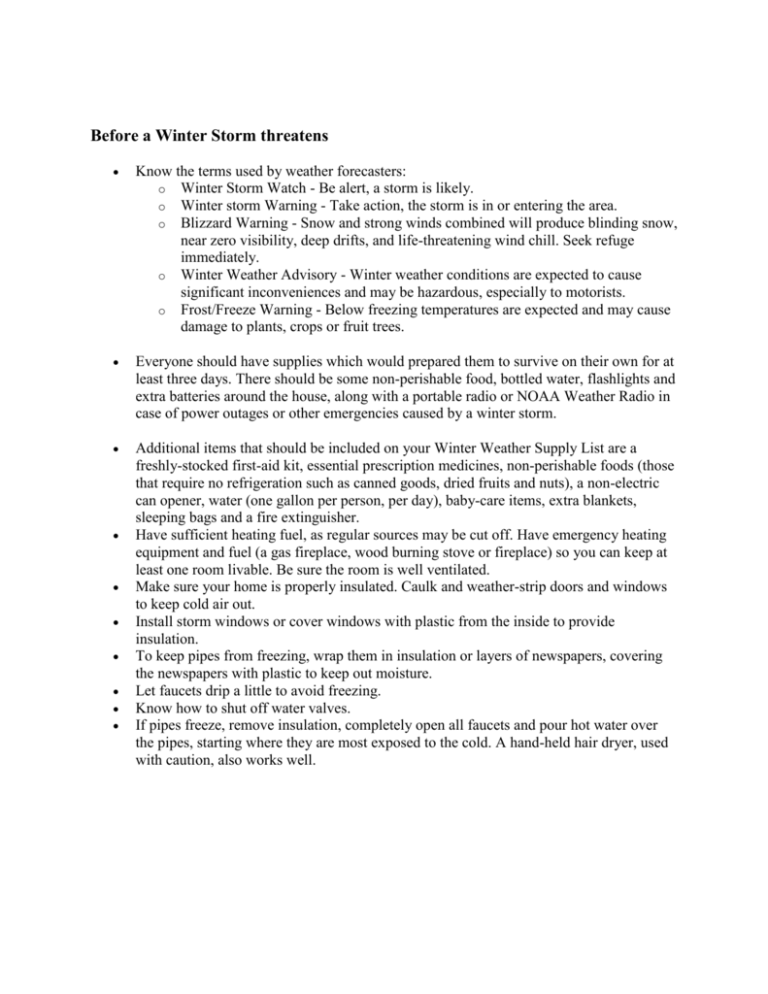
Before a Winter Storm threatens Know the terms used by weather forecasters: o Winter Storm Watch - Be alert, a storm is likely. o Winter storm Warning - Take action, the storm is in or entering the area. o Blizzard Warning - Snow and strong winds combined will produce blinding snow, near zero visibility, deep drifts, and life-threatening wind chill. Seek refuge immediately. o Winter Weather Advisory - Winter weather conditions are expected to cause significant inconveniences and may be hazardous, especially to motorists. o Frost/Freeze Warning - Below freezing temperatures are expected and may cause damage to plants, crops or fruit trees. Everyone should have supplies which would prepared them to survive on their own for at least three days. There should be some non-perishable food, bottled water, flashlights and extra batteries around the house, along with a portable radio or NOAA Weather Radio in case of power outages or other emergencies caused by a winter storm. Additional items that should be included on your Winter Weather Supply List are a freshly-stocked first-aid kit, essential prescription medicines, non-perishable foods (those that require no refrigeration such as canned goods, dried fruits and nuts), a non-electric can opener, water (one gallon per person, per day), baby-care items, extra blankets, sleeping bags and a fire extinguisher. Have sufficient heating fuel, as regular sources may be cut off. Have emergency heating equipment and fuel (a gas fireplace, wood burning stove or fireplace) so you can keep at least one room livable. Be sure the room is well ventilated. Make sure your home is properly insulated. Caulk and weather-strip doors and windows to keep cold air out. Install storm windows or cover windows with plastic from the inside to provide insulation. To keep pipes from freezing, wrap them in insulation or layers of newspapers, covering the newspapers with plastic to keep out moisture. Let faucets drip a little to avoid freezing. Know how to shut off water valves. If pipes freeze, remove insulation, completely open all faucets and pour hot water over the pipes, starting where they are most exposed to the cold. A hand-held hair dryer, used with caution, also works well.
